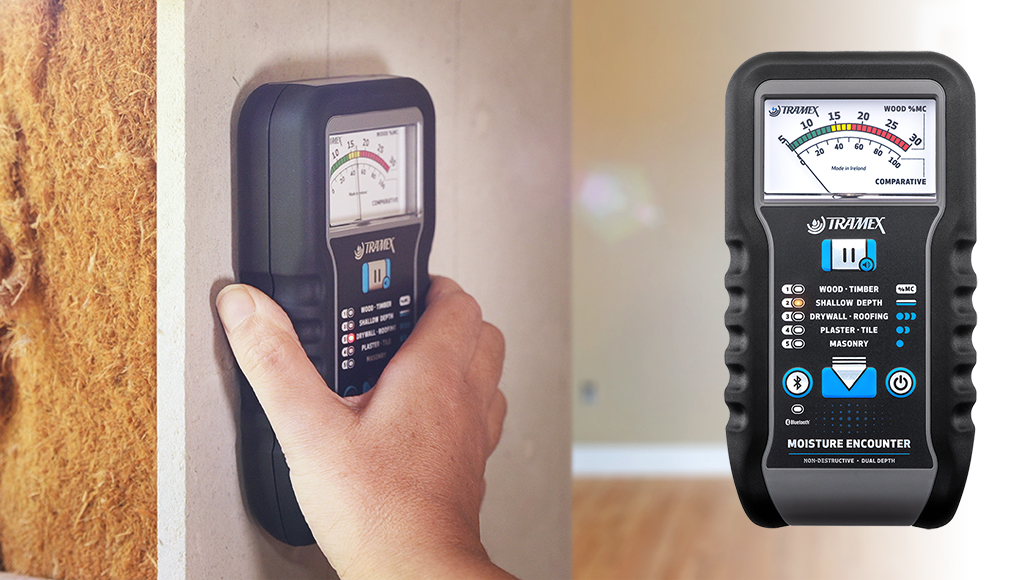The Ultimate Guide to Moisture Meters: A Comprehensive Review and Just How They Can Conserve You Cash
In the realm of building maintenance, construction, and various markets, the significance of precisely gauging dampness levels can not be overemphasized. Moisture meters act as essential tools in spotting and keeping an eye on moisture web content in products, aiding in avoiding pricey damages and making certain the quality of items. Recognizing the subtleties of various kinds of dampness meters, their applications, and the prospective cost-saving benefits they supply can be a game-changer for experts and businesses alike. Discovering exactly how these gadgets can not just streamline procedures however also contribute to financial cost savings is a journey worth starting.
Kinds Of Moisture Meters
Various sorts of moisture meters are available for different applications in different markets. One common type is the pin-type wetness meter, which gauges the electrical resistance in between two pins placed into a material. This type appropriates for wood, drywall, and various other structure products. Pinless dampness meters, on the various other hand, use electro-magnetic sensor plates to check a larger location without triggering damages to the material's surface area. These meters are suitable for quickly evaluating wetness levels in huge locations such as floors and walls.
Infrared moisture meters gauge the thermal residential properties of a material to determine its wetness content non-invasively, making them helpful for applications where pin or pinless meters may not be suitable. Understanding the different types of wetness meters available can help industries select the most appropriate tool for their specific moisture measurement demands.

Benefits of Using Moisture Meters

Furthermore, utilizing wetness meters can result in raised energy performance. By determining locations with high moisture degrees, such as leakages or poor insulation, changes can be made to boost power conservation and reduce energy prices. In agricultural settings, moisture meters play a vital role in maximizing crop returns by allowing farmers to keep an eye on soil dampness degrees and make notified irrigation decisions. On the whole, the advantages of making use of wetness meters extend throughout numerous industries, offering affordable services and promoting much better quality assurance practices.
How to Choose the Right Moisture Meter
Selecting the appropriate moisture meter involves considering essential elements such as product compatibility, measurement variety, and calibration accuracy. When picking a moisture meter, it's important to ensure that the meter appropriates for the details product you will certainly be screening. Different materials have varying electrical residential or commercial properties that can influence wetness analyses, so picking a meter designed for your material is essential for precise outcomes. Additionally, think about the dimension variety of the dampness meter. Guarantee that the meter can find wetness levels within the range required for your applications. Calibration precision is another crucial element to keep in mind (Moisture Meter). Opt for a wetness meter with trustworthy calibration to guarantee regular and exact analyses. Some meters might need periodic calibration modifications, so recognizing the calibration procedure is very important. By thoroughly reviewing these factors, you can choose a dampness meter that meets your requirements and gives accurate moisture dimensions for your tasks.
Proper Methods for Moisture Meter Use
To guarantee accurate wetness analyses and make best use of the performance of a wetness meter, using proper techniques is crucial. When using a pin-type moisture meter, place the pins or probes right into the material being evaluated until they make complete call. By following these appropriate strategies, users can count on their moisture meter to supply credible moisture levels, assisting in protecting against expensive damages or making sure top quality in various applications.

Cost Savings Through Moisture Meter Applications
Just how can the strategic use of dampness meters result in considerable price financial savings throughout various sectors? Dampness meters play a vital role in expense savings by protecting against prospective damages and ensuring quality assurance in different fields. In the farming industry, dampness meters help in figuring out the optimal time for collecting crops, stopping over-drying or excess moisture that can influence the last product's quality. This precise monitoring assists farmers stay clear of unneeded losses and maximize their return.

Moreover, in the food handling market, wetness meters are vital for keeping an eye on product top quality and making certain compliance with security laws. By accurately determining wetness web content in food products, makers can protect against spoilage, preserve quality, and reduce waste, leading to substantial price financial savings. Overall, the critical application of dampness meters is a useful investment that can cause considerable expense reductions and boosted efficiency across various sectors.
Final Thought
To conclude, wetness meters are read important tools for spotting and measuring dampness levels in different products. By utilizing the appropriate dampness meter and complying with appropriate techniques, users can properly protect against costly damages triggered by excess dampness. Buying a high quality wetness meter can cause substantial cost savings in the future by recognizing potential concerns beforehand and making it possible for punctual remediation. Eventually, wetness meters are essential tools for keeping the integrity and durability of materials and frameworks.
Dampness meters serve as essential devices in discovering and keeping an eye on moisture content in materials, assisting in avoiding costly damages and ensuring the quality of items. Infrared moisture meters determine the thermal homes of a product to establish its wetness content non-invasively, making them helpful for applications where pin or pinless meters may not be ideal.Moisture meters offer indispensable advantages in properly checking and evaluating moisture levels in diverse products and environments. In farming settings, wetness meters play an important duty in maximizing plant returns by allowing farmers to keep an have a peek here eye on dirt moisture levels and make notified watering choices.In conclusion, dampness meters are important tools for identifying and measuring wetness levels in various products.